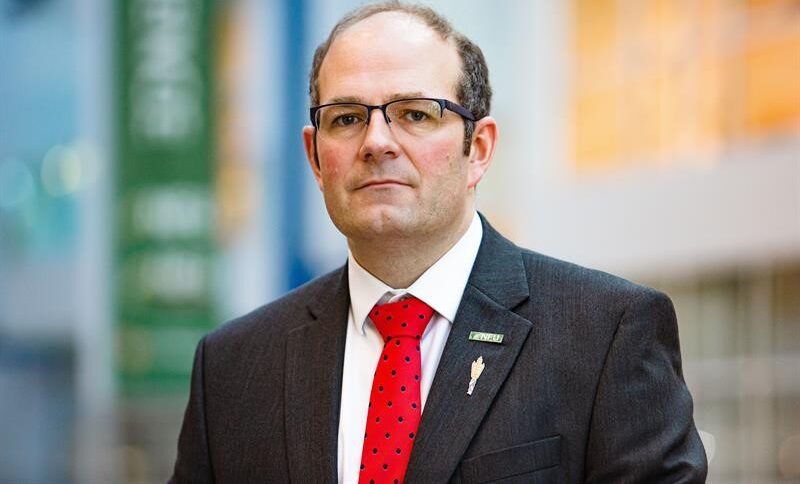The NFU is urging the government to look at its alternative ‘clawback’ solution to prevent farmers becoming collateral damage from planned inheritance tax (IHT) reforms, after the government published details of the policy.
On Monday, the Treasury published draft legislation to implement the new IHT policy within the finance Bill for 2025-26, which will be in autumn 2025.
Under the policy, as announced by chancellor Rachel Reeves in the last Autumn Budget, Agricultural Property Relief (APR) and Business Property Relief (BPR) will be reduced from 100% to 50% on assets worth more than £1m from April 1, 2026. This means IHT will apply at a reduced rate of 20% above that threshold, with farming families able to spread any charges equally over 10 years, free of any interest.
Depending on individual circumstances, the threshold at which farming families will start paying IHT will be higher than £1m in many cases.
According to Farmers Weekly, the policy paper suggests, based on the number of claims for APR and BPR made in 2021-22 (the most recent data available), that just 520 estates will pay more IHT in 2026-27, raising about £500m for the exchequer.
“This means almost three-quarters of all estates claiming agricultural property relief in 2026 to 2027, will not pay any more inheritance tax as a result of the changes,” it says.
The paper offers no impact assessment, but it does comment on food security, the report adds.
The NFU and others refutes these figures, insisting the actual impact will be much wider when the policy comes into force. Evidence from the NFU, in consultation with former Treasury and Office for Budget Responsibility (OBR) economists to inform analysis of the impacts of APR reforms on commercial family farms, found that up to 75% of working farms could be affected, with some facing tax bills of £100,000s.
Clawback option
The NFU noted that the government has outlined plans to hold a technical consultation on the draft legislation, including on inheritance tax, to ensure it ‘works as intended’.
This is a common process in the development of a Finance Bill, but given the appalling consequences of this legislation, the NFU said it will be ‘holding the government to account on every element of this policy’.
The NFU said it has repeatedly provided evidence that the current policy does not achieve the government’s intentions of closing a loophole, protecting family farms, or generating as much revenue as it should, and that it disagrees that it is ‘not expected to have a material impact on food security’.
The NFU’s ‘clawback’ solution would allow the Treasury to raise the revenue it seeks without tearing apart farming families or jeopardising domestic food production.
It suggests replacing the current system with one that allows farmers to only pay tax when they sell or give away their farm to people outside their family, instead of paying immediately or on a family member’s death. This way, family farms can keep their land and business running without having to sell to pay taxes, the NFU said.
Stop the family farm tax
The NFU pointed that since the November Budget, swathes of MPs from all parties, including members of the government’s own backbenches, alongside county councils, farming and business organisations, the food supply chain and over a quarter of a million members of the British public have joined the call to stop the family farm tax. The Office for Budget Responsibility and the government’s own Efra Committee have highlighted the impact these reforms will have on vulnerable elderly farmers.
NFU President Tom Bradshaw said: “At the heart of this battle are the elderly farmers who have devoted their entire lives to growing food for the country and supporting their rural communities. They should not become collateral damage. To see them face such uncertainty, knowing the legacy they and their families have worked hard for and grown could be ripped away by this tax, is heartbreaking. I cannot begin to imagine the fear many must be feeling right now – their homes, their livelihoods and everything they’ve worked for is under threat.
“I have spoken directly to the Prime Minister and Treasury Exchequer Secretary James Murray about the disastrous impact of this tax. Yet, despite our persistent efforts, Chancellor Rachel Reeves still refuses to meet us to discuss our alternative ‘clawback’ proposal. The Treasury claims our solution will raise less revenue, but is refusing to release the modelling on how it came to this conclusion.
“I echo the Prime Minister’s own words: getting this right is more important than pushing ahead with a policy that does not achieve its intentions.”
“The Prime Minister must now take his own advice and listen to the overwhelming evidence that the current policy will not work as intended. To ignore the consequences this tax will bring would be a betrayal of the very people who feed our nation. We cannot stand by and watch the backbone of the countryside be broken when there is a credible alternative being offered.”




